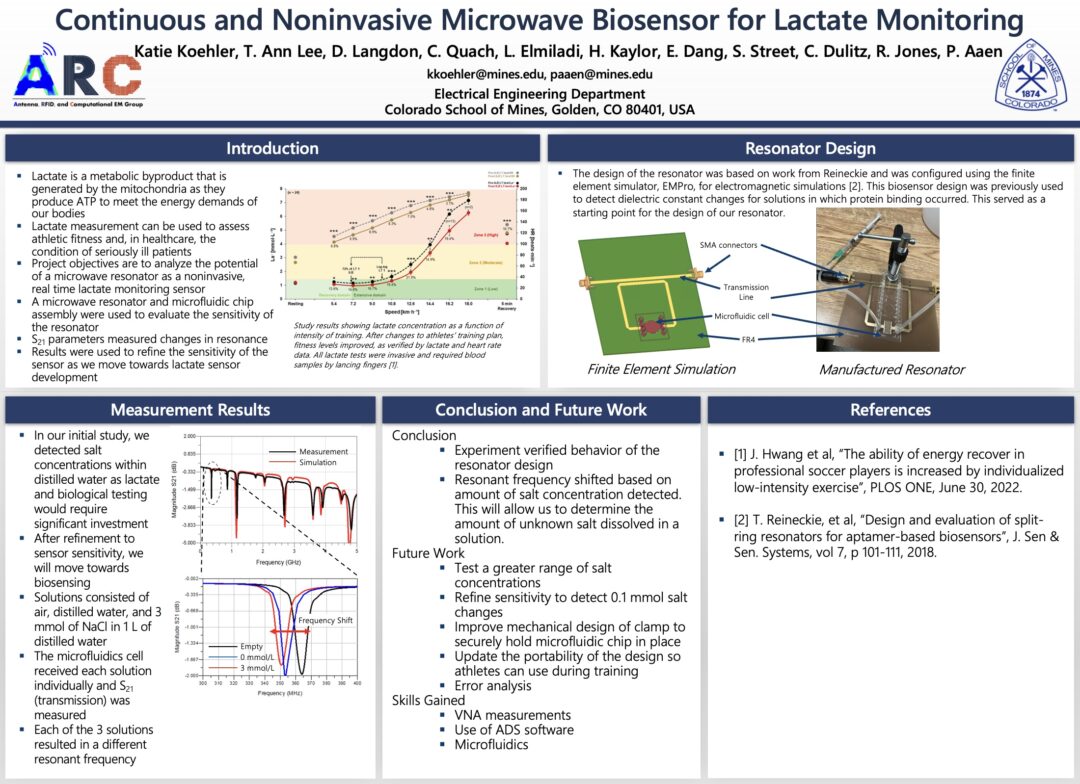Poster Presentation by Katie Koehler et al.
Junior, Electrical Engineering
Author: Daniel Langdon, Sophomore, Electrical Engineering
Author: Hailey Kaylor, First-year, Electrical Engineering
Author: Elaine Dang, Undergraduate Student
Author: Lisa Elmiladi, Junior, Electrical Engineering
Author Ciney Quach, Sophomore, Electrical Engineering
Author: Carson Dulitz, Undergraduate Student
Author: Taylor Lee, Sophomore, Electrical Engineering
Author: Steve Street, Student
Mentor: Dr. Peter Aaen, Electrical Engineering
Abstract:
This project proposes a microwave biosensor to noninvasively and continuously detect the concentration of lactate in athletes and healthcare patients. Lactate is a byproduct produced during aerobic and anaerobic metabolism when the body cannot produce sufficient oxygen to meet the body’s energy demands. In athletes, these levels are currently tracked by blood samples to determine the athlete’s fitness level. In healthcare patients, lactate production is measured to determine the oxygen supply to a patient’s tissues. By monitoring lactate levels, healthcare providers can provide appropriate treatment and improve patient outcomes, while athletes can adjust their training plans to improve performance and reduce the risk of injury.
In the initial phase of our sensor development, we report on the initial design by testing the sensor’s sensitivity to detect salt concentration changes in deionized water in a well-controlled laboratory environment. The sensor consists of a microwave resonator and microfluidic chip assembly, and it allows us to detect small changes in the dielectric properties of the deionized water solution resulting from different salt concentration levels. The results of this study will be used to further refine the sensitivity of the sensor as we move towards developing the lactate sensor.
